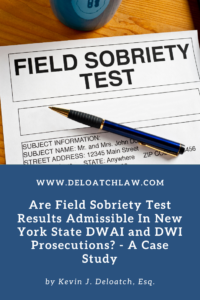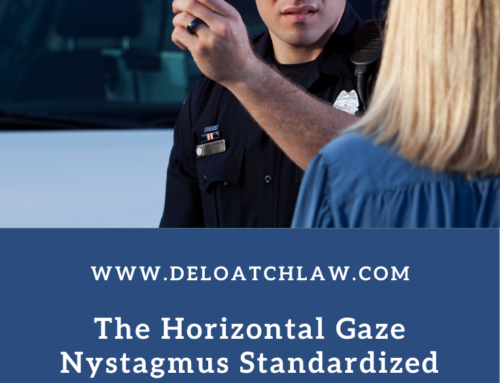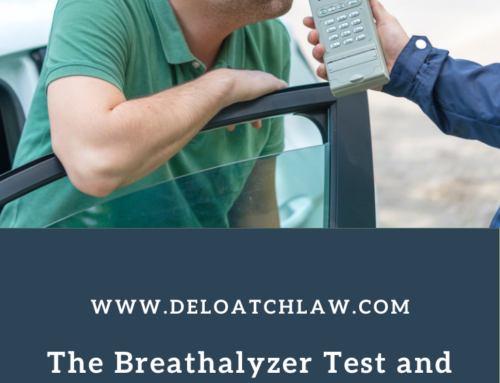Are the results of Standardized Field Sobriety tests admissible as evidence in prosecutions for DWAI and DWI in New York State? That is one of the most common questions I’m asked by clients who have been arrested and charged with driving while under the influence in New York. The short answer to the question is: it depends.
Being arrested for driving while under the influence (i.e., DUI) is an extremely stressful situation. Depending on the facts and circumstances of your arrest, charges and your driving history, it could mean anything from a loss of driving privileges to a substantial term of imprisonment. It can also be the difference between a violation, misdemeanor, or felony conviction. With that in mind, one of the most important decisions you will ever have to make is the choice of competent legal counsel. Like any other criminal case, the outcome of your case will be determined not only by the facts and circumstances, but also the skill, competence and thoroughness of your attorney.
New York DUI Laws
 In New York state, DUIs are covered under Vehicle and Traffic § 1192 and its various subsections – Operating a motor vehicle while under the influence of alcohol or drugs. In New York DUIs are referred to as DWAIs (e.g., driving while ability impaired and DWIs (e.g., driving while intoxicated). More specifically, for the holders of a non-commercial driver’s license and drivers over the age of 21, DWAI is covered under VTL § 1192(1), while DWI is covered under VTL § 1192(2) and VTL § 1192(3).
In New York state, DUIs are covered under Vehicle and Traffic § 1192 and its various subsections – Operating a motor vehicle while under the influence of alcohol or drugs. In New York DUIs are referred to as DWAIs (e.g., driving while ability impaired and DWIs (e.g., driving while intoxicated). More specifically, for the holders of a non-commercial driver’s license and drivers over the age of 21, DWAI is covered under VTL § 1192(1), while DWI is covered under VTL § 1192(2) and VTL § 1192(3).
For those who are unfamiliar, offenses in New York state fall into different categories (i.e., violations and crimes). DWAI and DWI are different with differing consequences. Specifically, DWAI is a violation, which carries penalties of fines and jail time of less than a year. DWI, however, is a crime. Depending on the circumstances, it can be either a misdemeanor or a felony. A DWAI also carries penalties of monetary fines and/or a period of incarceration; but depending on whether it’s a misdemeanor or a felony, the period of incarceration can be up to a year or greater.
A successful prosecution of DWAI requires the prosecution to prove the driver’s ability to properly operate the vehicle was impaired by the consumption of alcohol – diminished to a point where it negatively impacted their ability to operate the vehicle. A DWI, on the other hand, requires the prosecution to prove that the driver’s ability was impaired because they had a blood alcohol concentration (BAC) or breath alcohol concentration (BrAC) over a specific level.
Case Study
A little while ago I was contacted by someone who had been arrested for and charged with several counts of DWAI and DWI.
In speaking with my client for the first time, I could tell from their voice they were very concerned, and rightfully so. My client was a licensed professional, and a criminal record could negatively impact their ability to work in their licensed profession.
Specifically, I was able to determine my client was charged with three separate counts under VTL § 1192:
- 1 count of VTL § 1192(1) – DWAI;
- 1 count of VTL § 1192(2) – DWI, per se (i.e., BAC/BrAC of .08 or greater); and
- 1 count of VTL § 1192(2-a)(a) – Aggravated DWI (i.e., BAC/BrAC of .18 or greater).
 A review of the file, and my client’s driving record revealed they had no prior arrest record. Despite this being their “first offense”, the charges were serious. In particular, the charges of VTL § 1192(2) and VTL § 1192(2-a)(a) were both misdemeanors, and a conviction of either would result in a criminal record that would jeopardize my client’s job.
A review of the file, and my client’s driving record revealed they had no prior arrest record. Despite this being their “first offense”, the charges were serious. In particular, the charges of VTL § 1192(2) and VTL § 1192(2-a)(a) were both misdemeanors, and a conviction of either would result in a criminal record that would jeopardize my client’s job.
Reviewing all the discovery in a case is always important, particularly when there is video. Very few things reveal the strengths and weakness of a case like a clear video of what transpired. Video often captures those seemingly inconsequential actions or interactions of people. However, those seemingly inconsequential events often have a profound effect on the case.
In New York, there is typically video in a DWAI/DWI case. In this case, the video showed that four sobriety tests were administered:
- A chemical test of the breath (Breathalyzer);
- A Horizontal Gaze Nystagmus test (HGN);
- A Walk and Turn test (WAT); and
- A One Leg Stand test (OLS).
These tests are used to determine whether someone is either under the influence, or in the case of the Breathalyzer and HGN tests, whether someone is also intoxicated. The results/conclusion of these tests are used as evidence against the accused, which is quite compelling at a trial. However, before the prosecution can introduce the results/conclusions of the tests into evidence, they must be able to lay a proper foundation for the results (i.e., showing that the results can be trusted). To do this, the prosecution must be able to show, amongst other things, that the tests were both 1) properly administered 2) by someone who was properly trained to administer the tests.
In this case the video revealed the police officer(s) failed to administer all four of the tests according to the proper procedures. Thus, it became clear the prosecution was not going to be able to lay a proper foundation for any of the test results/conclusions.
Armed with this information, I was able to effectively advocate for my client by filing a very detailed suppression motion regarding the test results. The motion in turn led to some very meaningful discussions with the prosecutor regarding the (in)admissibility of the test results/conclusions.
The case quickly went from the prosecution’s hard stance of “going to trial” to a very favorable resolution without a criminal record for my client.
Hiring a Criminal Defense Attorney
So, are the results of Standardized Field Sobriety tests admissible as evidence in prosecutions for DWAI and DWI in New York State? The answer depends on whether the tests were properly administered, and prosecution is able to lay a proper foundation for their admissibility.
Navigating the criminal justice system is difficult and has serious consequences. Hiring a criminal defense attorney is one of the single most important decisions you will make in your life. Make sure you hire an attorney that takes time to understand you as a person and your case in its entirety.
At the Law Office of Kevin J. Deloatch, Esq. each case is handled from the initial stage with thoroughness as if it were going to trial. This enables me to not only understand the strengths of the defense, but more importantly, to effectively convey to the prosecutor the weaknesses of their case.
If you or someone you know has been charged with a crime in New York call the Law Office of Kevin J. Deloatch, Esq. at (646) 792-2156. The results of all criminal prosecutions are determined by the facts and circumstances of your specific case and the skill and experience of your defense attorney. Call today for a free consultation.








